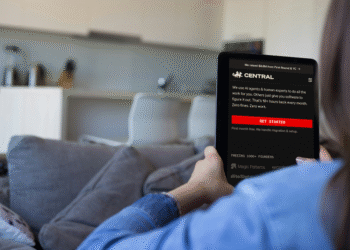
In the previous post, I covered the basics of how Canadian companies can employ remote talent in the U.S. Now, let’s dive deeper into additional strategies and considerations while tapping into the American talent pools which may not be immediately obvious.
Leveraging U.S. Tech Hubs
When hiring U.S. employees, consider targeting specific tech hubs that align with your startup’s focus. Here are some tech hubs that have each created their niche while they continue to be a magnet for diverse technologies:
- Silicon Valley: Still the epicenter of tech innovation, perfect for cutting-edge startups
- Seattle: Home to Amazon and Microsoft, ideal for cloud computing and e-commerce expertise
- Austin: Emerging tech scene with a lower cost of living compared to coastal cities
- Boston: Strong in biotech and robotics
- New York: Fintech and media tech powerhouse
By focusing on these regions, you are tapping into regions with a higher concentration in those niche industries, and also open up the possibility of building a satellite office in that region in the future.
Crafting Competitive Compensation Packages
To attract top U.S. talent, it is important to offer compelling compensation packages. Consider including these components in the compensation design:
- Equity: Offer stock options or restricted stock units (RSUs) to align employee interests with company growth
- Performance Bonuses: Implement clear, achievable metrics tied to individual and company success
- Health Benefits: Consider partnering with a U.S. health insurance provider to offer comprehensive coverage. If the employee prefers purchasing their own insurance, then you would be expected to add the cost to their total compensation
- 401(k) Plans: While not mandatory, offering retirement benefits can be a strong differentiator – though it is not as common among tech startups
Building a Remote-First Culture
For overseas startups hiring U.S. talent remotely, fostering a strong company culture is crucial as integrating well with your larger teams is critical for their success. While this is not an exhaustive piece on remote work, here are some processes that you need to design or modify around remote work:
- Virtual Team Building: Organize regular online social events, gaming sessions, or virtual coffee breaks
- Asynchronous Communication: Implement tools like Slack and Asana to facilitate communication across time zones
- In-Person Retreats: Budget for annual or bi-annual team gatherings to strengthen personal connections
- Cultural Exchange: Celebrate both your local and American holidays to create an inclusive environment
- Remote Work Resources: Share best practices and support for remote employees
Investing in a robust remote work infrastructure will pay dividends in employee satisfaction and retention.
Compliance and Legal Considerations
Staying compliant with U.S. labor laws is critical for foreign startups:
- State-Specific Regulations: Be aware that labor laws can vary significantly between states
- Worker Classification: Clearly define whether your U.S. hire is an employee or contractor to avoid misclassification issues
- Intellectual Property: Ensure your employment contracts address IP ownership
- Data Privacy: Familiarize yourself with U.S. data protection laws, particularly if dealing with sensitive information
Consider partnering with a U.S.-based legal firm specializing in employment law to navigate these complexities.
Leveraging U.S. Networking Events
Tapping into U.S. networking events can be invaluable in finding and attracting the talent that you want to hire, versus hiring only from the pool who apply to your job vacancies. Here are some tactics to go talent spotting:
- Virtual Conferences: Participate in online tech conferences to scout talent and build your brand
- Hackathons: Sponsor or participate in U.S. hackathons to identify promising developers
- University Career Fairs: Many top U.S. universities now offer virtual career fairs, providing access to fresh graduate talent
- Industry Meetups: Participate in local tech meetups and proactively promote your employer brand
- Industry-Specific Events: Attend virtual career fairs focused on specific tech niches that are relevant to you, e.g., AI, blockchain, or cybersecurity
- Diversity-Focused Fairs: Engage in virtual fairs that emphasize diversity and inclusion in tech and you’re likely to find like-minded talent that’s looking to get hired
Building a presence in the U.S. tech community can significantly enhance your recruitment efforts, and attune you to U.S. employee culture and expectations. Moreover, informal conversations at such events can be very insightful and help you navigate the local ecosystem better.
Optimizing Your Hiring Process for U.S. Candidates
Streamline your hiring process to accommodate U.S. applicants as much as possible, so you can maximize your reach.
- Time Zone Flexibility: Offer interview slots that work for different U.S. time zones
- Video Interviews: Invest in high-quality video conferencing tools for seamless remote interviews. My personal favorite is Zoom for its unsurpassed video and audio but if Teams / Meet or some other tool floats your boat, go for it.
- Cultural Fit: Develop questions that assess a candidate’s ability to work in a cross-border, remote environment
A smooth, professional hiring process can set you apart from other employers vying for top U.S. talent.
Creating a Global Company Culture
Culture starts with the CEO and the leadership team. What you create today becomes the source of inspiration and influence as your team grows, so be mindful to create a unified culture that transcends borders:
- Virtual Team-Building Activities: Organize online events that bring together all employees
- Global Recognition Programs: Implement rewards systems that acknowledge contributions across all locations
- Inclusive Communication Practices: Ensure everyone’s voice is heard equally and all company-wide communications consider time zones and cultural nuances
- Cultural Exchange: Promote understanding of your local culture and U.S. culture
- Cross-Border Mentorship Programs: Pair U.S. employees with leaders from other regions to ensure they are well-integrated
- Cross-Border Collaboration: Be intentional about creating connections between U.S. and non-U.S. team members when creating working groups and teams
Conclusion
Hiring U.S. employees can be a game-changer for overseas tech startups, providing access to a vast pool of skilled professionals and potentially opening doors to the U.S. market. By focusing on targeted recruitment, competitive compensation, remote work culture, and legal compliance, you can successfully integrate U.S. talent into your growing team. The key to success lies in thorough preparation, clear communication, and a willingness to adapt your processes to accommodate cross-border employment. With these strategies in place, your startup can leverage U.S. talent to drive innovation and growth.







